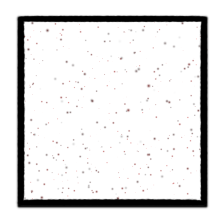Steam telepítése
belépés
|
nyelv
简体中文 (egyszerűsített kínai)
繁體中文 (hagyományos kínai)
日本語 (japán)
한국어 (koreai)
ไทย (thai)
Български (bolgár)
Čeština (cseh)
Dansk (dán)
Deutsch (német)
English (angol)
Español - España (spanyolországi spanyol)
Español - Latinoamérica (latin-amerikai spanyol)
Ελληνικά (görög)
Français (francia)
Italiano (olasz)
Bahasa Indonesia (indonéz)
Nederlands (holland)
Norsk (norvég)
Polski (lengyel)
Português (portugáliai portugál)
Português - Brasil (brazíliai portugál)
Română (román)
Русский (orosz)
Suomi (finn)
Svenska (svéd)
Türkçe (török)
Tiếng Việt (vietnámi)
Українська (ukrán)
Fordítási probléma jelentése


 Pennsylvania, United States
Pennsylvania, United States 















 57 értékelés
57 értékelés 



It's probably a translation issue, but I have no interest.
Matter is only relative to the speed of light since it is "quantum singularity gateway" in flux that creates creates everything we consider "real"... but that is only relative to itself.
This flux of energy outside or above the electromagnetic spectrum intrudes into the speed of light level and creates the mass of the Neutron. This balances to the energy of the proton energy that dropped into light speed level. This fluctuation of gravity creates Mass and the electrons outside of the Nucleus. The fluctuation also creates our relative Time.
There is energy beyond that. Matter is mostly empty space. It is the relative energy to the speed of light that makes things material to us.
Consciousness cannot be measured by any device. It is beyond the electromagnetic spectrum of energy. That is why we do not know where the "seat of consciousness" resides since we cannot actually measure and track it.
Have you ever considered matter itself as a direct function of energy?
If Einstein's equation is right, mass can only exist in the presence of energy. Energy must be greater than zero if mass is to be greater than zero, as the speed of light is a constant. So what happens in the absolute absence of energy? No mass whatsoever.
Can matter without mass even be considered matter? Can it even be considered as existing?